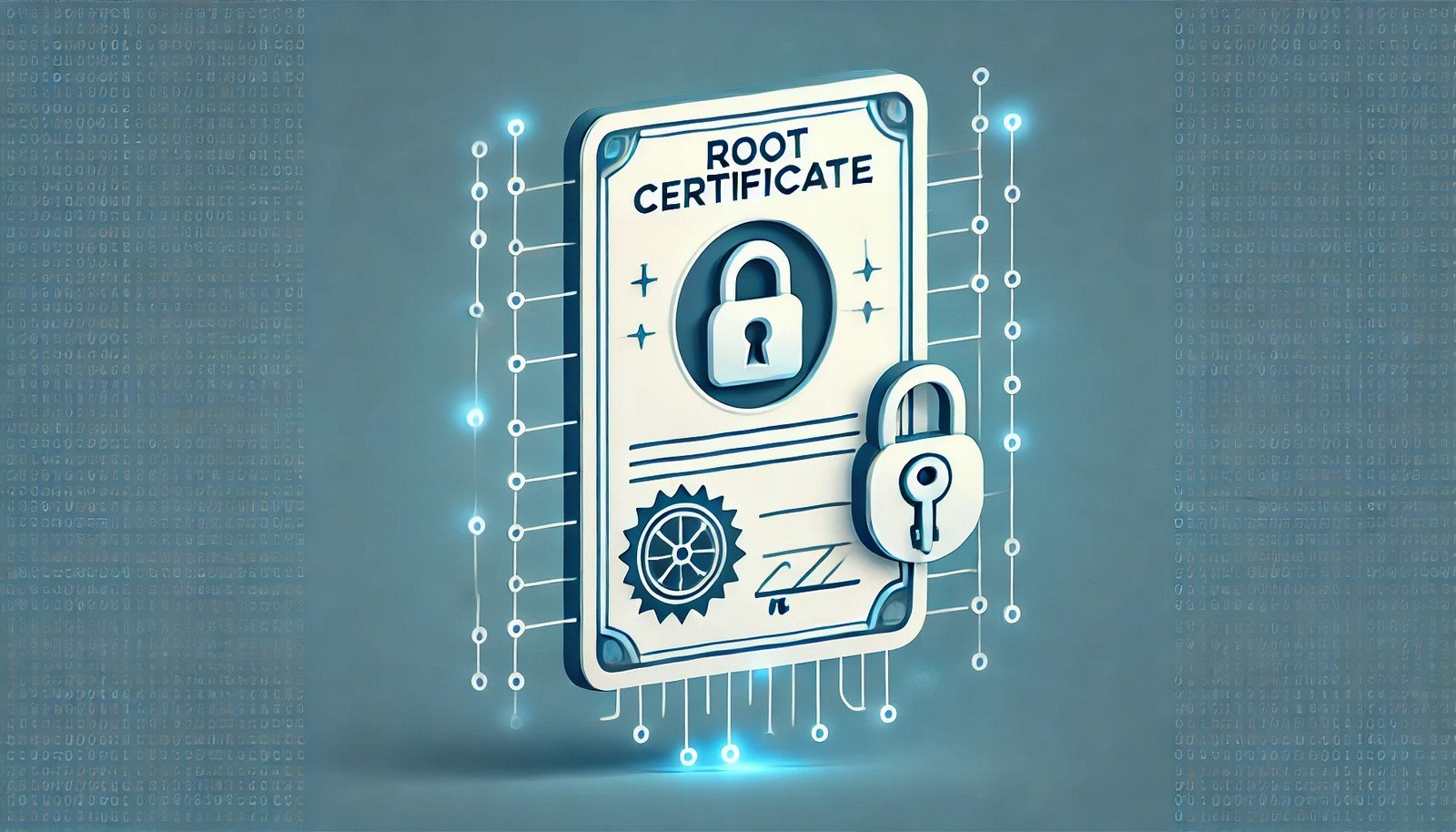Root Certificate
 (Representational Image | Source: Dall-E)
(Representational Image | Source: Dall-E)
Quick Navigation:
- Root Certificate Definition
- Root Certificate Explained Easy
- Root Certificate Origin
- Root Certificate Etymology
- Root Certificate Usage Trends
- Root Certificate Usage
- Root Certificate Examples in Context
- Root Certificate FAQ
- Root Certificate Related Words
Root Certificate Definition
A root certificate is a fundamental component of the public key infrastructure (PKI) used for secure communications on the internet. It is issued by a trusted certificate authority (CA) and is used to validate and authenticate other certificates in a hierarchical chain. Root certificates are pre-installed in operating systems and browsers, ensuring that digitally signed software, websites, and emails can be trusted. If a root certificate is compromised or expires, all certificates dependent on it may become invalid.
Root Certificate Explained Easy
Imagine a royal seal that proves an important letter is genuine. A root certificate is like that seal—it confirms that other certificates are real and trustworthy. Web browsers trust these certificates so they know websites are safe. If the royal seal gets stolen or broken, people won’t trust the letters anymore, just like how a bad root certificate can make other certificates unsafe.
Root Certificate Origin
Root certificates emerged with the rise of the internet and secure communications. Early implementations of digital security relied on cryptographic methods, but as online transactions grew, a need for structured trust systems arose. Certificate authorities (CAs) were established to issue and verify certificates, ensuring a secure web ecosystem.
Root Certificate Etymology
The term “root certificate” comes from its foundational role in a hierarchy of trust, where it serves as the primary, or “root,” authority that verifies all subordinate certificates.
Root Certificate Usage Trends
With increasing cyber threats, the reliance on root certificates has grown significantly. They are crucial in web security, email encryption, and software authentication. Modern trends include the automation of certificate management and stricter compliance regulations, ensuring better security in an era of frequent cyberattacks.
Root Certificate Usage
- Formal/Technical Tagging:
- Cybersecurity
- Public Key Infrastructure (PKI)
- Digital Certificates - Typical Collocations:
- "trusted root certificate"
- "certificate authority root"
- "root certificate validation"
- "expired root certificate"
Root Certificate Examples in Context
- When you visit a website using HTTPS, your browser checks the root certificate to ensure the site is secure.
- Companies use root certificates to sign software updates, proving they come from a trusted source.
- Email encryption services rely on root certificates to confirm that messages have not been tampered with.
Root Certificate FAQ
- What is a root certificate?
A root certificate is a trusted digital certificate used to validate other certificates in a security system. - Why are root certificates important?
They establish trust in digital communications, ensuring that websites, software, and emails are legitimate. - Who issues root certificates?
Certificate authorities (CAs) such as DigiCert, GlobalSign, and Let's Encrypt issue root certificates. - Can a root certificate expire?
Yes, root certificates have expiration dates, and expired ones must be replaced to maintain trust. - What happens if a root certificate is compromised?
If compromised, all certificates depending on it become untrustworthy, leading to security risks. - How do I check if a root certificate is valid?
You can verify a root certificate in your operating system or browser’s certificate manager. - Can I create my own root certificate?
Yes, but it won’t be widely trusted unless added to the trusted certificate store. - Why do some websites show security warnings related to root certificates?
This happens when the website’s certificate is expired, misconfigured, or issued by an untrusted authority. - Are root certificates used in email encryption?
Yes, they verify that encrypted emails come from legitimate sources. - How often are root certificates updated?
Root certificates are updated periodically to maintain security standards.
Root Certificate Related Words
- Categories/Topics:
- Cryptography
- Web Security
- Digital Authentication
Did you know?
In 2011, a major cybersecurity breach occurred when a hacker compromised DigiNotar, a Dutch certificate authority. The attacker issued fake certificates, leading to widespread security concerns. This incident highlighted the importance of securing root certificates to prevent trust violations in online communications.
PicDictionary.com is an online dictionary in pictures. If you have questions or suggestions, please reach out to us on WhatsApp or Twitter.Authors | Arjun Vishnu | @ArjunAndVishnu

I am Vishnu. I like AI, Linux, Single Board Computers, and Cloud Computing. I create the web & video content, and I also write for popular websites.
My younger brother, Arjun handles image & video editing. Together, we run a YouTube Channel that's focused on reviewing gadgets and explaining technology.



Comments powered by CComment